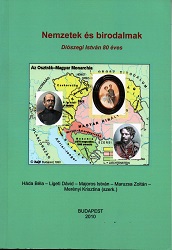
We kindly inform you that, as long as the subject affiliation of our 300.000+ articles is in progress, you might get unsufficient or no results on your third level or second level search. In this case, please broaden your search criteria.

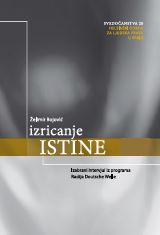
Interviews by Želimir Bojević, with: 1. Halilović, Alija 2. Stojanović, Gordana 3. Spasović, Grujica 4. Lučić , Zoran 5. Matić, Jovanka 6. Pavićević, Borka 7. Karamarković, Leposava 8. Stojadinović, Ljubodrag 9. Suša, Gordana 10. Nenadović, Aleksandar 11. Đorđević, Mirko 12. Mihajlov, Mihajlo 13. Barović, Nikola 14. Stojanović, Lazar 15. Matić, Veran 16. Duve, Freimut 17. Šaponja-Hadžić, Milanka 18. Čupić, Čedomir 19. Trkulja, Jovica 20. Đorđević, Snežana 21. Trebješanin, Žarko 22. Pavlović, Vukašin 23. Milivojević, Snježana
More...
Every Saturday for a period of two months, from the beginning of April till the end of June 1992, sessions organized by the Belgrade Circle were held at the Student Cultural Centre in Belgrade. At these sessions, ten in all, intellectuals, members of the Belgrade Circle and their quest – distinguished writers, scientists, artists, journalists, film and theatre directors, architects, actors, interpreters – expressed their own views of another, radically different Serbia. In times of anguish and affliction, the meetings, attended by a large assembly of listeners experiencing a kind of moral purification, were nonetheless imbued with a frail hope that there still might be a chance for a turn in events. With a desire to present ideas, opinions and sensations shared by the participants of the Belgrade Circle sessions to a much larger audience, the reading public, and to preserve them, because of their merit, in a more lasting form, discussions of over eighty intellectuals were compiled to form this book. In the meantime, the overwhelming disaster has reached its climax: »The Bosnian War«, still raging with no feasible way out as yet, exploded and blazed up like fire. The Belgrade Circle participants, distressed and abashed at the display of all those real or imagined evil deeds, so eagerly reported by the portentous heralds of death voiced hitherto often deeply hidden and silent feelings and thoughts about their burdensome disgust at the plague gripping and afflicting us all. Each participant contributed in his or her own way – rigorous scientific analysis, artistic susceptibility, eyewitness accounts, or simply. A public-minded desperate wail – to the shaping of one new, public opinion, the one that stirred in that sad Spring of ’92 and rebelled against the general fear, animosity, devastation, extermination, ethnic cleansing, forcible population exchanges... All those responsible and public-minded citizens, holding different political opinions, some members of various political parties, with incomparable personal experiences, varied professional interest and often of »objectionable« national origin, showed, however the will to insert tolerance among the basic principles of a humanized way of fife. But, in spite of the pronounced differences, their common aim, discernable in each and every speech imported to the audience, was to finally establish a community based on simple but as yet still unattainable ideals such as peace, freedom, tolerance and justice in place of degrading political, national and religious exclusiveness. Participants focussed their attention on various aspects of the problem: some analysed the roots of hatred and evil; some indicated the disastrous consequences of irresponsible national myth revivals; others warned of menaces yet to come unless we see reason in time. Some were stern, others witty and others still perhaps too prone to pathos, but they were all deeply concerned, and, as it unfortunately turned out, correct in predicting subsequent events. Therefore, individuals who take no notice of current, official policy and who have for a long time now tenaciously refused to render their talent and knowledge to the needs of the authorities, gathered round a project titled »Another Serbia«. Instigating a state of war and providing alleged erudite justification for the necessity of mutual extermination in the name of some noble goals, vague even to the very massacre executors, must not and cannot be the vocation of anyone who considers him or herself an »intellectual«, or earns a living acting as one. Hence, all session participants had but one desire: to mark out a path that may lead into a more promising future, to another, different, better and happier Serbia. »Another Serbia« soon became the synonym of resistance to fabricated lies, nationalistic madness, criminal war, a fascist holocaust, senseless destruction of villages and cities. Thanks are also due to the daily newspaper »Borba« which regularly reported on the Belgrade Circle Saturday sessions, and published a number of contributions presented there... We hope that the Another Serbia we all aspire to be easily discernable in the collection of essays presented in this book. The reader who hopes to find traces of at least some political program will be gravely disappointed. At present, when politics have poisoned the very soul of so many men of letters and knowledge, and when, among the most violent oppressors, in the ranks of all mortal enemy groups, one finds so many proud bearers of scientific degrees, who may actually be designated as men of unmerited and easily squandered reputation, it has become somewhat indecent to praise »intellectual pursuits«. The Belgrade Circle was, however, founded early in 1992 with the aim of retrieving dignity – another dangerous quality! – to public speech and conceived plans of action for the benefit of truth. We do not take an elitist position and stand indifferently above the crowd. On the contrary, being deeply involved and concerned, we place ourselves in its midst. The Association of Independent intellectuals insists upon its main goal, as declared in the program, namely, to bring together »critically oriented public figured who wish to unite their own civil and intellectual engagements with those of other, basically similarly oriented people«. That is why the Belgrade Circle will continue to »promote ideas, deeds and activities that affirm the values of a democratic, civil and plural society...« The Belgrade Circle will »encourage free and critical thought in all spheres of public life. It will support and help institutions and individuals who resist violence and animosity, and who plead for dialogue and for the survival of culture as the only humanly valid way of life«. Fine speeches? Maybe. Nevertheless, the Belgrade Circle has already, and despite many organizational and financial hardships, as well as ugly and unjust abuse from people who should have been, by the very nature of their vocation, in our ranks had they not knuckled under the burden of a more noble – national to be sure – mission, gained an undeniably high reputation. The words uttered with the aim of promoting »Another Serbia« and presented in this book to serve at testimony to the existence of a number of sensible people, shrewd and brave enough to resist suffocation by overwhelming absurdity, were not the only »weapon« used by Belgrade Circle members. They had also an active part in numerous civil and peace movements and events, thus contributing to the establishment of critical public opinion in Belgrade and Serbia: let us recall, for instance, the sad candles and our wake in the park, with souls colder than the Belgrade frost, while one of the past infernal wars – God, which one was it? – was raging out there somewhere; let us recall the »Black Band«, »Yellow Band«, »Student Protest ‘92«, and our endeavours to bring the people of Hrtkovci (»Srbislavci«) to reason; let us recall our guests from Pljevlja, Montenegro, Bosnia... All the time we were just launching our unhappy and, we believe, noble, though perhaps futile venture the very first participant said: let the Belgrade Circle begin it’s work! We hope that by offering this book to the public we have already come a long way.
More...
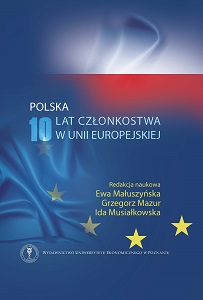
Celem artykułu jest próba oceny znaczenia uczestnictwa Polski w jednolitym rynku europejskim dla wybranych uwarunkowań mobilności edukacyjnej i zawodowej młodych Polaków. Zasadniczą tezą jest natomiast stwierdzenie, że udział Polski we wspólnotowych programach edukacyjnych zwiększa szanse młodych ludzi na rynku pracy.
More...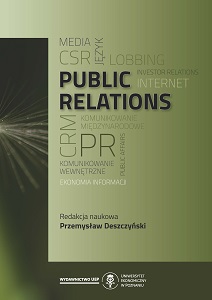
Międzynarodowe public relations należy traktować jako dziedzinę powstałą w konsekwencji zmian i wciąż pogłębiających się procesów zachodzących na arenie międzynarodowej. Globalizacja, mediatyzacja i demokratyzacja doprowadziły do powstania nowych aktorów w środowisku międzynarodowym, a także redefinicji roli państw od ośrodków administracyjnych do podmiotów konkurujących ze sobą w zglobalizowanej gospodarce. Umiędzynarodowienie życia gospodarczego wymaga dostosowania się do nowych warunków poprzez wdrażanie pewnych rozwiązań od strony praktycznej oraz pojęć w wymiarze teoretycznym, który ową praktykę stara się opisywać i wyjaśniać. W sytuacji coraz większej roli mediów funkcjonujących w skali międzynarodowej, pogłębiającej się demokratyzacji i globalnej konkurencji umiędzynarodowienie public relations zdaje się nieodzowne. Państwa i nowi aktorzy, do których zalicza się między innymi korporacje czy też organizacje międzyrządowe, konfrontując się z wyzwaniami, jakie stawia przed nimi współczesne życie gospodarcze, muszą podejmować się działań z zakresu międzynarodowych public relations, aby zyskać atrakcyjność i konkurencyjność w środowisku międzynarodowym. Dziedzina ta wykracza poza tradycyjne ujęcie public relations, ponieważ należy w niej uwzględnić różnice językowe, kulturowe i geograficzne. Istotne wydaje się także to, że ta dziedzina odgrywa niezwykle ważną rolę w perspektywie państw i organizacji międzyrządowych. Działania z zakresu międzynarodowych public relations tworzą dodatkową, pozornie nieuchwytną, wartość w postaci reputacji, miękkiej siły i marki kraju, co przekłada się na zaufanie, a w konsekwencji pozwala na wprowadzanie pozytywnych zmian, promowanie wartości, poprawę efektów ekonomicznych i budowanie pozycji podmiotu w środowisku międzynarodowym.
More...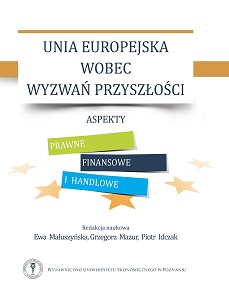
Zarówno w przedlizbońskim, jak i obecnym stanie prawnym wspólna polityka zagraniczna i bezpieczeństwa, jako płaszczyzna współpracy w ramach Unii Europejskiej, wyróżniała się i nadal wyróżnia na tle innych rodzajów polityki prowadzonych w traktatowych ramach tej organizacji. Najważniejsze kierunki ewolucji WPZiB wytyczyły dwa traktaty, a wiec traktat amsterdamski i traktat lizboński. Ten ostatni zasadniczo zmienił usytuowanie WPZiB w ramach UE, co wiązało się z likwidacją charakterystycznej, trójfilarowej konstrukcji prawnej UE oraz z istotnymi zmianami instytucjonalnymi w jej strukturze. Specyfika współpracy w ramach WPZiB spowodowała jednak, że została ona wyraźnie wyodrębniona zarówno z całego katalogu pozostałych unijnych rodzajów polityki, jak i z całej grupy działań zewnętrznych Unii.
More...
W ramach wspólnej polityki zagranicznej i bezpieczeństwa Unia Europejska stosuje sankcje mające wspomóc egzekwowanie jej celów, a zwłaszcza przestrzegania praw człowieka, demokracji i praworządności. Celem artykułu jest analiza skuteczności polityki sankcji Unii Europejskiej wobec Islamskiej Republiki Iranu. Zastosowaną metodą badawczą jest analiza porównawcza. Pierwsza część artykułu została poświęcona teoretycznemu ujęciu sankcji oraz czynnikom mającym wpływ na ich skuteczność. W następnym opisano podstawy systemowe wspólnej polityki zagranicznej i bezpieczeństwa Unii Europejskiej oraz zastosowanie sankcji jako jej elementu. W trzeciej części przedstawiono próbę oceny efektywności unijnej polityki sankcji wobec Iranu.
More...
Podejmując problem granic polityczno-gospodarczej działalności państwa rozumianej jako dopuszczalny zakres publiczno-prawnej ingerencji w stosunki gospodarcze, podkreślić należy konieczność analizy uwarunkowań ustrojowych. W przypadku Polski wynikają one z krajowych regulacji konstytucyjnych i z praw podstawowych oraz zasad ustroju gospodarczego Unii Europejskiej. Wpływ na organizację gospodarki unijnej i krajowej mają również pozaprawne regulacje zachowań gospodarczych, czyli polityka gospodarczo-społeczna prowadzona przez instytucje unijne oraz krajowe organy władzy publicznej. Autorka prezentuje szczególnie formułę społecznej gospodarki rynkowej, a także aksjologiczne podstawy publicznoprawnej ingerencji w gospodarkę w obszarze rozwoju i spójności.
More...
Problem stabilizowania zadłużenia stał się szczególnie istotny obecnie w kontekście kryzysu finansowego w państwach strefy euro. Rodzą się pytania: czy państwa te są w stanie ustabilizować zadłużenie w ciągu najbliższych lat? czy obowiązujące obecnie traktatowe kryterium deficytu sektora general government jest wystarczające do oceny sytuacji finansów publicznych, w świetle braku oceny jego struktury wskazującej na obciążenie budżetu bieżącymi kosztami obsługi długu? czy ocena poziomu salda pierwotnego (deficytu pierwotnego) nie byłaby bardziej adekwatnym warunkiem weryfikacji bieżącego stanu finansów publicznych? W artykule tym autorzy dokonali analizy sytuacji finansów publicznych w krajach strefy euro z uwzględnieniem wybranych wskaźników budżetowych. Celem badania było wskazanie podstaw do oceny możliwości stabilizowania długu przez te kraje, a tym samym próba wskazania na możliwe odpowiedzi na powyższe pytania.
More...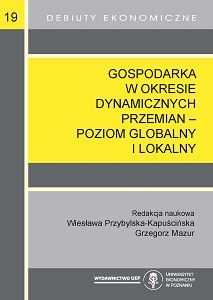
Lobbing jako forma wywierania nacisku na podejmowanie decyzji w różnych systemach politycznych występuje już od momentu zawiązania się pierwszej instytucji państwa. Wraz z rozwojem systemów gospodarczych nie tylko nabrał on charakteru globalnego, ale również zinstytucjonalizowanego i co za tym idzie, bardziej transparentnego. Proces ten implikuje wobec tego nową rzeczywistość również dla Unii Europejskiej, w której to lobbing odgrywa obecnie kluczową rolę przy zawieraniu umów gospodarczych z krajami trzecimi. W artykule przedstawiono sposób funkcjonowania grup interesu oraz ich powiązania i relacje z organami Unii Europejskiej. Zostało to zobrazowane na przykładach procesów pertraktacji umów o wolnym handlu pomiędzy Unią a Japonią, Kanadą (Comprehensive Economic and Trade Agreement – CETA) oraz Stanami Zjednoczonymi (Transatlantic Trade and Investment Partnership – TTIP).
More...
Niniejszy artykuł stanowi próbę odpowiedzi na pytanie o skuteczność kryteriów konwergencji oraz przyczyny niewystarczającej zbieżności między państwami strefy euro. Przedstawiona będzie geneza kryteriów konwergencji oraz ich teoretyczne podstawy. Zaprezentowane zostaną doświadczenia pierwszej dekady funkcjonowania strefy euro, kiedy to kryteria konwergencji były niekiedy traktowane jedynie jako luźne wskaźniki. W celu odpowiedzi na pytanie, czy kryteria konwergencji są wystarczającymi oraz adekwatnymi warunkami członkostwa w strefie euro, analizie zostaną poddane najważniejsze przyczyny leżące u podstaw kryzysu 2008+ w Europie, zmiany w zarządzaniu gospodarczym strefą euro oraz najważniejsze koncepcje literatury przedmiotu. W efekcie możliwe będzie sformułowanie wniosków dotyczących skuteczności kryteriów konwergencji oraz nowych rozwiązań dotyczących zarządzania gospodarczego w strefie euro.
More...
Celem artykułu jest charakterystyka środków protekcji uwarunkowanej stosowanych w Unii Europejskiej w kontekście zmian dokonujących się na jednolitym rynku wewnętrznym i w gospodarce światowej. W opracowaniu skupiono się na środkach ochrony przed nieuczciwym importem, w szczególności instrumentach antydumpingowych, gdyż te stosowane są najczęściej. Wykorzystana w opracowaniu metoda badawcza obejmuje analizę źródeł literaturowych, w tym aktów wtórnego prawa Unii Europejskiej oraz danych statystycznych dotyczących środków protekcji uwarunkowanej, a także praktykę gospodarczą.
More...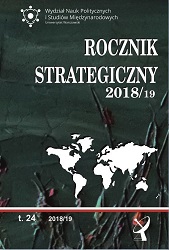
The aim of this article is to analyze the conflicts which were ongoing in 2018,in Yemen and Africa. The selection of armed conflicts was made on the basis ofthree main criteria: intensity, i.e. the scale of battle-deaths; internationalization, i.e.military involvement of third countries; the activities of jihadist groups. The articlediscusses armed conflicts in the Sahel region and the Lake Chad, in Libya, Somalia,and Yemen. As part of the Strategic Yearbook series that reviews current armedconflicts, this study is a continuation of the analyses from previous years. Its purposeis to explore the conditions and dynamics of the 2018 armed conflicts and theirimplications for international security. It explains the reasons of their increasingintensity and internationalization. The expansion of jihadist groups, especiallythose related to IS (Islamic State of Iraq and Levant, the so called Islamic State) orAl-Qaeda (AQ), is perceived as an important factor in this regard. It is argued thatthe activity of armed jihadist groups leads also to greater military involvement ofWestern states.
More...
The article offers an analysis of the most important energy market trends from theperspective of their importance for energy security and climate change. The energyand climate systems are two areas of human activity strongly influencing each other.On the one hand, the way energy is produced and consumed influences the globalclimate system, on the other hand, climate policy impacts energy security. The articletherefore focuses on the directions and dynamics of changes taking place in theenergy sector and which are of particular importance for global reductions of CO2emissions. It gives an insight into the policies of the world’s largest consumers offossil fuels and into the extent to which their activities favour energy transformation.This analysis critically assesses the feasibility of achieving the global climate policytargets set in 2015 in Paris. Especially importantly for the Strategic Yearbook, the2018 events and current trends serve as points of reference: the article outlines theconditions and results of climate negotiations of COP24 held in Poland and thenewest IPCC report on Global Warming of 1.5°C. An analysis of demand-supplytrends, recent trends in the area of CO2 emissions as well as current events leads toconclusions concerning some long-term challenges for energy and climate security.
More...
Współczesny regionalizm przestaje być procesem, w który zaangażowane są głównie kraje rozwijające się. Coraz częściej pojawiają się w jego ramach gospodarki wysoko rozwinięte (np. Stany Zjednoczone, Kanada, Unia Europejska, Japonia, Korea Południowa, Australia), dla których takie działanie stanowi możliwość określenia priorytetowych dziedzin (tzw. narzucenia agendy, agenda setting) na drodze ku liberalizacji handlu i tym samym wskazania dróg jego dalszej ewolucji podporządkowanej narodowym lub wspólnie podzielanym interesom. Na tym tle umowa handlowa zawarta między Unią Europejską a Republiką Korei (Koreą Południową) stanowi porozumienie nowej generacji warte bliższej analizy. Rozważania obejmują syntetyczny przegląd głównych motywów jej zawarcia wraz z odniesieniem do wybranych badań, określenie celu oraz hipotez roboczych oraz prezentację wyników analizy w odniesieniu do zmian, jakie miały miejsce w trakcie pierwszych kilku lat jej obowiązywania w obrębie handlu towarowego, w tym w szczególności dóbr zaawansowanych technologicznie (high-tech).
More...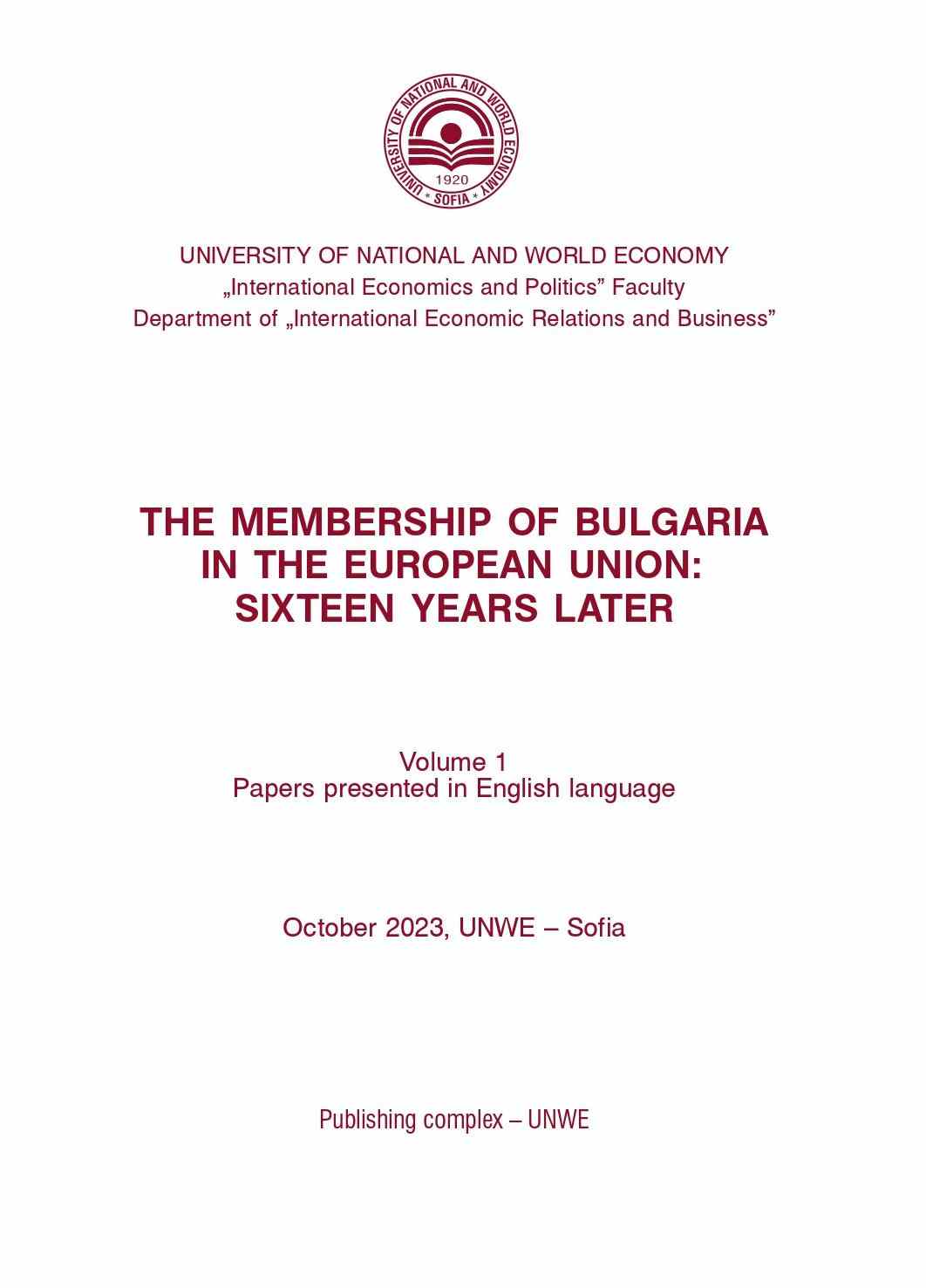
The term “Supply Chain” can be described as the whole network of businesses and individuals which are collaborating in order to produce and distribute a final good or service. The whole system is affected if one part of it is malfunctioning. The study aims to analyze the impact of Brexit on supply chains in the United Kingdom based on a literature review and personal reflection on the topic. The research indicates that Brexit has been the most significant impact on the supply chains in the United Kingdom, foremost due to delays and red tape following the 2021 Trade and Cooperation Agreement (TCA). Many businesses had to find new suppliers to reestablish supply. Strategies used to decrease the adverse effects include supplier diversification and nearshoring (transferring business operations closer to home). Unfortunately, a lot of companies continue to search for ways to enhance the efficiency and resilience of their supply chains.
More...
The user journey is a pivotal concept in marketing that evolves and adapts amidst technological, economic, and behavioral shifts. This paper aims to present practical models for user journey planning, exploring their influence and subsequent utilization by companies exporting their products. Specifically, it delves into Bulgarian companies and their strategies to plan and implement exports to EU member states. Interviews have been conducted with marketing managers exporting from Bulgaria to the EU. The framework identified in the analysis is employed, detailing the various approaches companies opt for. The paper concludes by outlining areas for further analysis regarding companies’ decisions related to elements of the user journey in international sales.
More...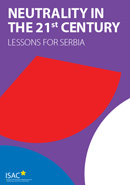
I have been asked to present at this opening panel some historical background information on the European neutrals in the Cold War. As we will talk more specifically about the experiences of individual neutral states tomorrow, I will mainly focus here tonight on the ideological and systemic conflict between the superpowers and on what this meant for the practice of neutrality during the period from 1945 to 1989.
More...
I will make an attempt to briefly present the key determinants and content guidelines of the Yugoslavian non-aligned policy, but also to indirectly indicate the contact points and differences between this policy and the concept of neutrality itself. After a period of uncritical glorification, followed also by euphoric satanization of the non-aligned concept, finally the time has come, based on relevant archive material, to provide real answers, at least to some elementary questions in this field. Some of them are: if this policy was in fact desired or forced; how difficult was it to prompt sometimes unwilling partners who were not belonging to neither of political-military blocks to cooperate, and finally, why Yugoslavia distanced itself from Europe and connected to far away and unknown civilizations.
More...